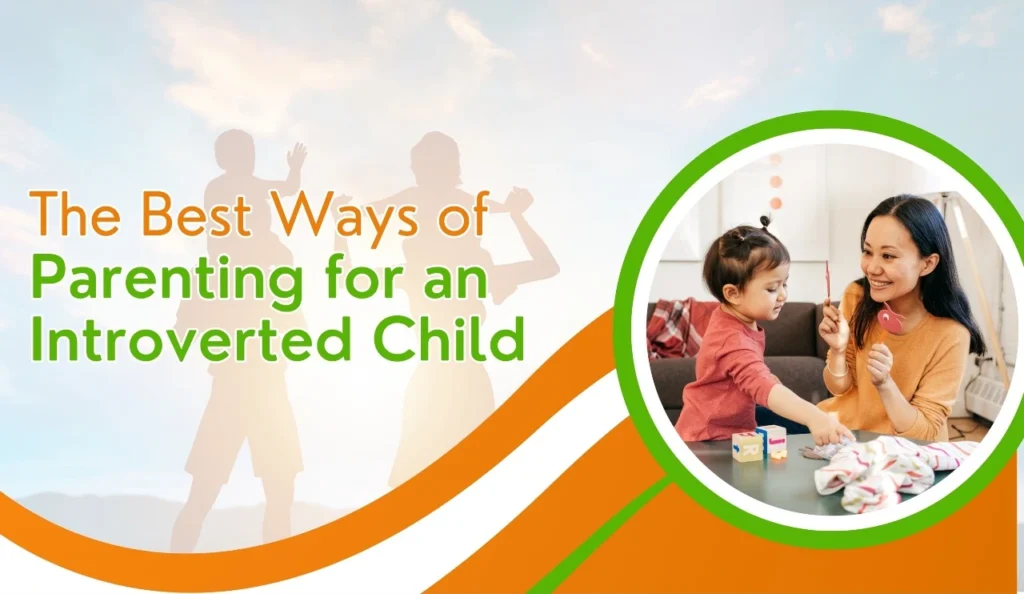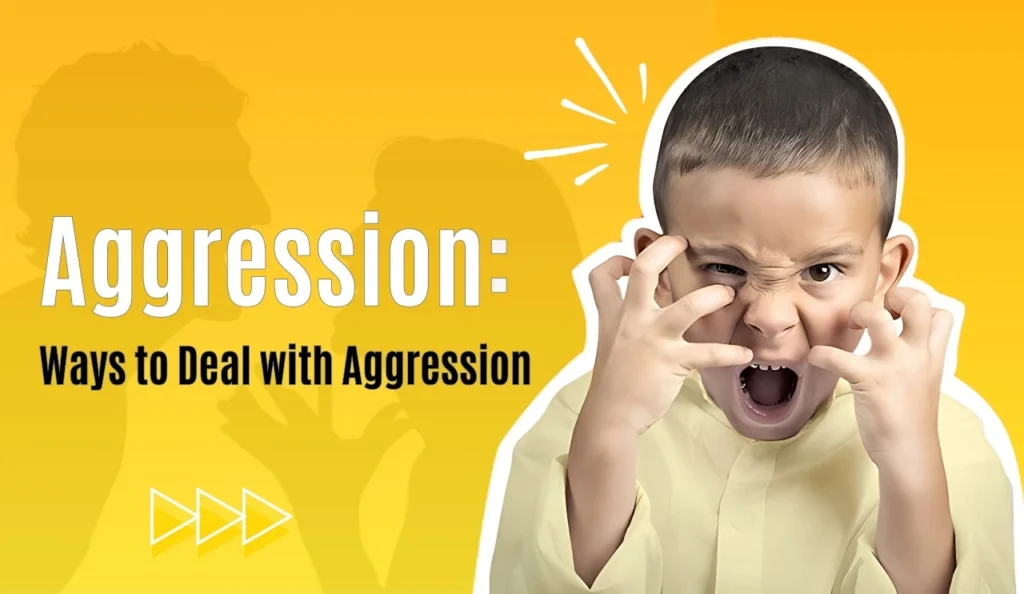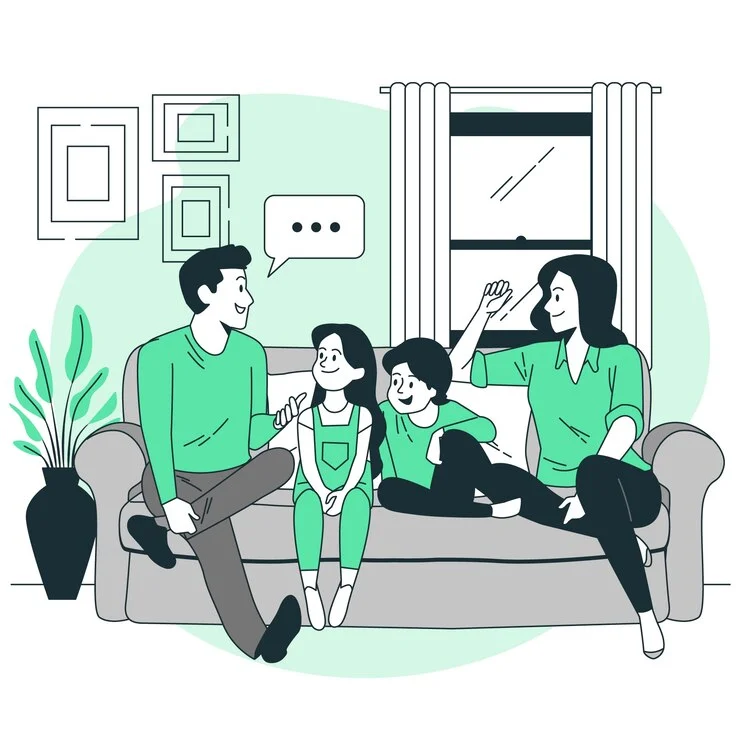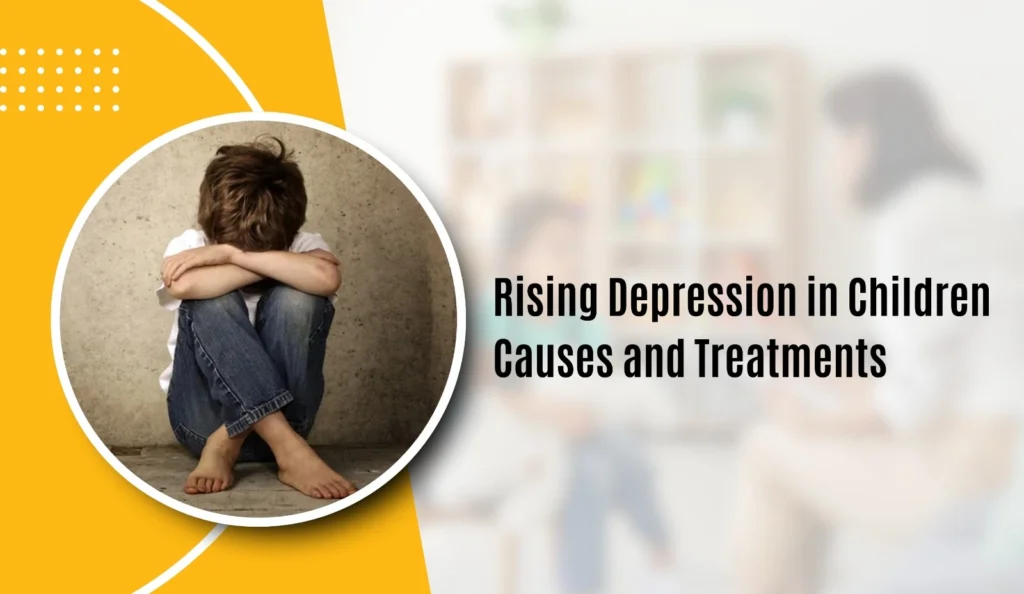-
129, Block-A Bangur Avenue, Mousumi Appartment, Kolkata 700055
129, Block-A Bangur Avenue, Mousumi Appartment, Kolkata 700055

Hello Reader! Welcome to the blog page of Mind’s Eye, one of the best psychological counsellor in Kolkata. Every child is unique, with their temperament, interests, and emotional needs. While some children thrive on social interactions, others prefer solitude, deep thinking, and quiet environments. These are often the qualities of introverted children, and understanding them is key to supporting their growth. In this blog, we’ll dive into the most effective strategies for parenting for introverted child, guided by insights from the best psychological counsellor in Kolkata, Dr. Rupa Talukdar. Who Is an Introvert Child?Why Parenting for Introverted Child Requires a Different ApproachBest Ways of Parenting for Introverted Child1. Respect Their Need for Alone Time2. Encourage Communication Without Pressure3. Value Deep Interests and Passions4. Facilitate One-on-One Friendships5. Help Them Build Confidence Gently6. Teach Coping Strategies for Overwhelm7. Work With Teachers and CaregiversWhat are some specific activities that can help introverted children feel more confident?1. Role-Playing and Pretend Play2. Creative Arts and Hobbies3. Structured Group Activities4. Reading and Storytelling5. Outdoor Exploration6. Games That Foster Social Skills7. Assigning Small Responsibilities8. Gradual Exposure to Social Settings9. Modeling Confident Behavior10. Positive ReinforcementProfessional Support: When to Seek HelpHow can parents balance giving their introverted child alone time with ensuring they socialize enough?1. Respect Their Need for Alone Time2. Encourage Meaningful Social Interactions3. Gradual Exposure to Social Situations4. Monitor Their Emotional Well-Being5. Communicate and Validate Their Needs6. Advocate for Their Needs in Social SettingsWhat are the common misconceptions about introverted children?1. "Introverted Children Are Shy"2. "Introverted Children Don’t Like to Socialize"3. "Introverts Are Not Good Leaders"4. "Introverted Children Are Always Quiet"5. "They Are Lonely or Sad"6. "They Need to Be Fixed"7. "Introverts Don’t Have Fun"8. "They Lack Confidence"FAQ1. How can I tell if my child is an introvert?2. What is the best approach to parenting an introverted child?3. Should I push my introverted child to be more social?4. Can introverted children become confident adults?5. When should I consult a psychological counsellor for my introverted child?Final Thoughts from the Best Psychological Counsellor in Kolkata Who Is an Introvert Child? An introvert child is someone who recharges by spending time alone, thinks deeply before speaking, prefers one-on-one interactions over groups, and may feel overwhelmed by noisy environments. Introversion is a personality trait, not a flaw. As the best psychological counsellor in Kolkata, I often remind parents that introversion is not shyness or social anxiety, but simply a different way...

Symptom of burnout can manifest in unexpected ways—including aggression. Learn how to recognize the signs, understand the connection, and explore coping strategies to protect your mental well-being. The Hidden Signs of Burnout: Why Aggression Can Be a Red Flag Burnout isn't just about feeling tired or overworked—it's a deeper, more chronic emotional state that impacts your mood, behavior, and physical health. Among the many signs that someone may be experiencing burnout, aggression is one of the most misunderstood and overlooked. It's often dismissed as irritability or attributed to personality traits. But in many cases, this behavioral change can be a symptom of burnout. In today’s fast-paced urban environments, mental health is increasingly under strain. Whether you're a corporate employee, healthcare worker, teacher, or homemaker, the pressure to perform constantly can silently chip away at your emotional reserves. The Hidden Signs of Burnout: Why Aggression Can Be a Red FlagWhat Is Burnout?Common Symptoms of Burnout Include:Why Aggression Can Be a Symptom of BurnoutHow It Happens:Signs That Aggression May Be Burnout-Related:Burnout vs. Other Mental Health ConditionsKey Differences:How to Cope With Aggression as a Symptom of BurnoutHealthy Coping Strategies:When to Seek Help From a ProfessionalTherapy Can Help You:How to Choose the Right CounselorQualities to Look for:FAQs on Burnout and AggressionQ1: Is aggression always a symptom of burnout?Q2: Can burnout go away on its own?Q3: How long does it take to recover from burnout?Q4: Can burnout affect physical health too?Q5: Should I be worried if I feel more irritable lately?Addressing the Root, Not Just the ReactionDon’t Let Burnout Speak Louder Than You Do This article explores the connection between aggression and burnout, and how seeking guidance from a reputed psychological counselor which can make a significant difference. What Is Burnout? Burnout is a state of chronic physical and emotional exhaustion caused by prolonged stress. It often arises from work, but it can also stem from caregiving, academic pressure, or even managing home responsibilities without adequate support. Common Symptoms of Burnout Include: Emotional fatigue Cynicism or detachment from work or relationships Decreased productivity Sleep disturbances Physical symptoms like headaches or stomach issues Increased irritability and aggression Why Aggression Can Be a Symptom of Burnout Many people don’t associate burnout with outward behaviors like anger. However, when emotional reserves are depleted, the body and mind react defensively. This often manifests as irritability, short temper, or sudden bursts of anger—even in situations that wouldn't typically provoke such...

Hello Reader! Welcome to the blog page of Minds’s Eye by Dr. Rupa Talukdar, one of the best psychological counsellor in Kolkata. Aggression is a natural human emotion. It can arise due to frustration, fear, hurt, stress, or unresolved trauma. While occasional irritation is common and manageable, frequent or intense aggression can disrupt relationships, impair decision-making, and negatively impact mental health. As a psychological counsellor, I often encounter clients who struggle to deal with aggression, either their own or that of others around them. Understanding and managing aggression is not about suppression; it’s about healthy expression, emotional regulation, and developing coping mechanisms. In this blog, let’s explore what aggression is, why it happens, and how one can effectively deal with aggression in daily life. What Is Aggression?Common Causes of AggressionWays to Deal with Aggression1. Identify Triggers2. Practice Deep Breathing and Relaxation3. Use "Time-Outs"4. Develop Better Communication Skills5. Exercise Regularly6. Seek Therapy7. Use Creative Outlets8. Avoid Substance Triggers9. Practice Empathy10. Set Realistic ExpectationsDealing with Aggression in OthersWhat are the most effective techniques for managing aggression in therapy?1. Cognitive-Behavioral Therapy (CBT)2. Dialectical Behavioral Therapy (DBT)3. Relaxation Techniques4. Assertive Communication Training5. Identifying Triggers6. Physical Activity7. Problem-Solving Skills8. Diversion Techniques9. Crisis De-Escalation StrategiesHow can cognitive-behavioral therapy help in reducing aggression?1. Identifying Triggers and Thought Patterns2. Cognitive Restructuring3. Behavioral Strategies4. Problem-Solving Skills5. Assertiveness Training6. Emotional Regulation7. Exposure Therapy for Specific TriggersEffectiveness of CBT for AggressionHow can social skills training help in reducing aggressive behavior?1. Enhancing Self-Awareness2. Teaching Emotional Regulation3. Developing Conflict Resolution Skills4. Encouraging Prosocial Behavior5. Reducing Antisocial Behavior6. Role-Playing and PracticeEffectiveness of Social Skills TrainingFAQ1: What is aggression and why does it occur?2: How can I deal with aggression in myself?3: Is it normal to feel aggressive sometimes?4: How can therapy help in dealing with aggression?5: How should I respond to someone else’s aggression?Final Thoughts What Is Aggression? Aggression can be defined as behavior intended to cause harm or assert dominance. It may be verbal, emotional, or physical. It is often a reaction to perceived threats, unmet needs, or internal psychological turmoil. There are different forms of aggression: Passive-aggressive behavior: Indirect expression of hostility. Overt aggression: Direct verbal or physical hostility. Reactive aggression: Impulsive reaction to a provocation. Instrumental aggression: Goal-oriented aggression without emotion. Recognizing the type of aggression is the first step in learning how to deal with aggression. Common Causes of Aggression Stress and Anxiety High stress levels can lead to irritability...

Mentally strong kids are more resilient and emotionally balanced. Learn proven parenting strategies shared by experts, including tips from a well-known psychological counselor. Why Mental Strength Matters in ChildhoodWhat Are Mentally Strong Kids?Role of Parenting in Building Mental StrengthLeading by ExampleCreating a Safe and Supportive EnvironmentEncouraging Problem-Solving SkillsPractical Tips to Raise Mentally Strong KidsSet Healthy BoundariesEncourage Emotional ExpressionAvoid OverprotectionPromote a Growth MindsetPractice Mindfulness TogetherLimit Screen Time and Encourage Real-Life ConnectionsThe Link Between Mental Strength and Future SuccessFocus Keyword Subheading: Recognizing Signs of Mentally Strong KidsWhen to Seek Professional GuidanceFAQs About Raising Mentally Strong KidsQ1. Can I raise a mentally strong child if I struggle with anxiety myself?Q2. How do I handle my child’s fear of failure?Q3. Is discipline bad for building mental strength?Q4. At what age should I start teaching emotional resilience?Every Step Counts Why Mental Strength Matters in Childhood In today’s fast-paced, highly digital, and socially complex world, raising mentally strong kids is more important than ever. Emotional resilience, self-control, problem-solving abilities, and self-awareness aren’t just buzzwords—they’re essential skills for navigating life. While every child is unique, parents can foster mental strength through conscious and informed parenting. Let’s explore practical and evidence-based parenting strategies that support emotional well-being, boost resilience, and lay a strong mental foundation for children. What Are Mentally Strong Kids? Mentally strong kids aren’t fearless or immune to stress. Instead, they: Recognize and express emotions in a healthy way Cope with challenges without giving up Show empathy and kindness to others Think critically and adapt to changes Maintain self-confidence even in failure These traits aren't solely inherited. They're taught, modeled, and reinforced through parenting choices. Role of Parenting in Building Mental Strength Leading by Example Children learn more by observing than being told. Demonstrating calmness under stress, owning up to mistakes, and practicing gratitude helps children internalize these behaviors. Creating a Safe and Supportive Environment A mentally strong child is one who feels secure in their home. They know they can express themselves without judgment. Encourage open communication Validate their feelings without rushing to fix everything Let them know it’s okay to fail and try again Encouraging Problem-Solving Skills Instead of offering immediate solutions, guide your child to think through situations: Ask, "What do you think you should do?" Help them weigh consequences Celebrate their attempts, not just outcomes Practical Tips to Raise Mentally Strong Kids Here are tried-and-tested parenting tips that foster emotional and psychological...

Depression in Teenagers often intensifies during seasonal shifts. Learn how to identify signs, support your teen, and explore insights from a reputed psychological counselor. What is Seasonal Affective Disorder (SAD)?Recognizing the Symptoms of Depression in TeenagersCauses and Risk FactorsImpact on TeenagersStrategies to Manage and Alleviate SymptomsLight TherapyPsychotherapyMedicationLifestyle ModificationsThe Role of Parents and EducatorsFrequently Asked Questions (FAQs)Facing Seasonal Depression in Teenagers Together Seasonal changes can profoundly impact our well-being, and for teenagers, these shifts can be particularly challenging. One condition that emerges during specific times of the year is Depression in Teenagers, especially in the form of Seasonal Affective Disorder (SAD). Understanding this condition is vital for parents, educators, and the teens themselves to ensure timely support and intervention. What is Seasonal Affective Disorder (SAD)? Seasonal Affective Disorder is a type of depression that recurs annually, typically during the fall and winter months when daylight hours are shorter. While it can affect individuals of all ages, teenagers are particularly susceptible due to the unique physiological and psychological changes they experience during adolescence. Recognizing the Symptoms of Depression in Teenagers Identifying SAD in teenagers requires careful observation, as its symptoms can sometimes be mistaken for typical adolescent behavior. Key indicators include: Persistent Low Mood: A continuous feeling of sadness or hopelessness. Loss of Interest: Diminished interest in activities once enjoyed, including hobbies and social engagements. Sleep Disturbances: Oversleeping or struggling to wake up in the morning. Changes in Appetite: Craving carbohydrates leads to weight gain. Difficulty Concentrating: Struggling with focus, which can impact academic performance. Social Withdrawal: Avoiding friends, family, and social situations. It's essential to differentiate between occasional mood swings common in teenagers and a consistent pattern that aligns with seasonal changes. Causes and Risk Factors Several factors contribute to the onset of SAD in teenagers: Biological Clock Disruption: Reduced sunlight can disrupt the body's internal clock, leading to feelings of depression. Serotonin Levels: A drop in serotonin, a neurotransmitter affecting mood, might be triggered by reduced sunlight, leading to depressive symptoms. Melatonin Levels: The change in season can disrupt the balance of melatonin, which affects sleep patterns and mood. Teenagers residing in regions farther from the equator, where daylight hours are significantly reduced in winter, are at a higher rate of risk. Impact on Teenagers The repercussions of SAD in teenagers extend beyond mood disturbances: Academic Challenges: Difficulty concentrating can lead to declining grades and academic performance....

Hello Reader! Welcome to the blog page of Mind’s Eye by Dr. Rupa Talukdar, one of the best psychological counsellor in Kolkata. In recent years, the alarming rise in depression in children has become a significant concern for parents, educators, and mental health professionals. Childhood, which should be a time of joy and growth, is increasingly being overshadowed by stress, anxiety, and emotional struggles. As the best psychological counsellor in Kolkata, I have encountered numerous cases where children face depression due to various environmental, social, and biological factors. Understanding the root causes and implementing the right treatment strategies is crucial in tackling this growing issue. Understanding Depression in ChildrenCauses of Depression in Children1. Academic Pressure2. Family Conflicts and Parental Issues3. Bullying and Peer Pressure4. Lack of Emotional Support5. Genetic and Biological Factors6. Trauma and Abuse7. Excessive Screen Time and Social Media InfluenceSigns and Symptoms of Depression in ChildrenTreatment and Coping Strategies1. Professional Counselling and Therapy2. Parental Guidance and Family Therapy3. Medication (If Necessary)4. Encouraging Physical Activity and Hobbies5. Managing Screen Time and Social Media Exposure6. Building a Support System7. Teaching Emotional ResilienceWhat are the most effective treatments for childhood depression?1. Psychotherapy2. Medication3. Lifestyle ModificationsHow can parents recognize early signs of depression in their children?Emotional SignsBehavioral ChangesPhysical SymptomsCognitive SignsWhat role do genetic factors play in childhood depression?Genetic Influences on Childhood Depression1. Family History and Heritability2. Specific Genetic Variants3. Twin and Family StudiesGene-Environment InteractionsWhen to Seek HelpFAQConclusion Understanding Depression in Children Depression is more than just feeling sad or having occasional mood swings. It is a persistent condition that affects a child's emotions, thoughts, and behaviors. Unlike adults, children may not always express their feelings in words, making it difficult for parents to recognize the signs. If left untreated, depression in children can lead to severe emotional and developmental consequences. Causes of Depression in Children Several factors contribute to depression in children, and identifying these causes is the first step toward effective treatment. Some of the most common reasons include: 1. Academic Pressure The growing emphasis on academic excellence puts immense pressure on children. Fear of failure, competition, and parental expectations often lead to stress and, in some cases, depression. 2. Family Conflicts and Parental Issues Children are highly sensitive to family dynamics. Parental conflicts, divorce, domestic violence, or the loss of a loved one can trigger emotional distress, leading to depression. 3. Bullying and Peer Pressure Bullying, both online and offline,...